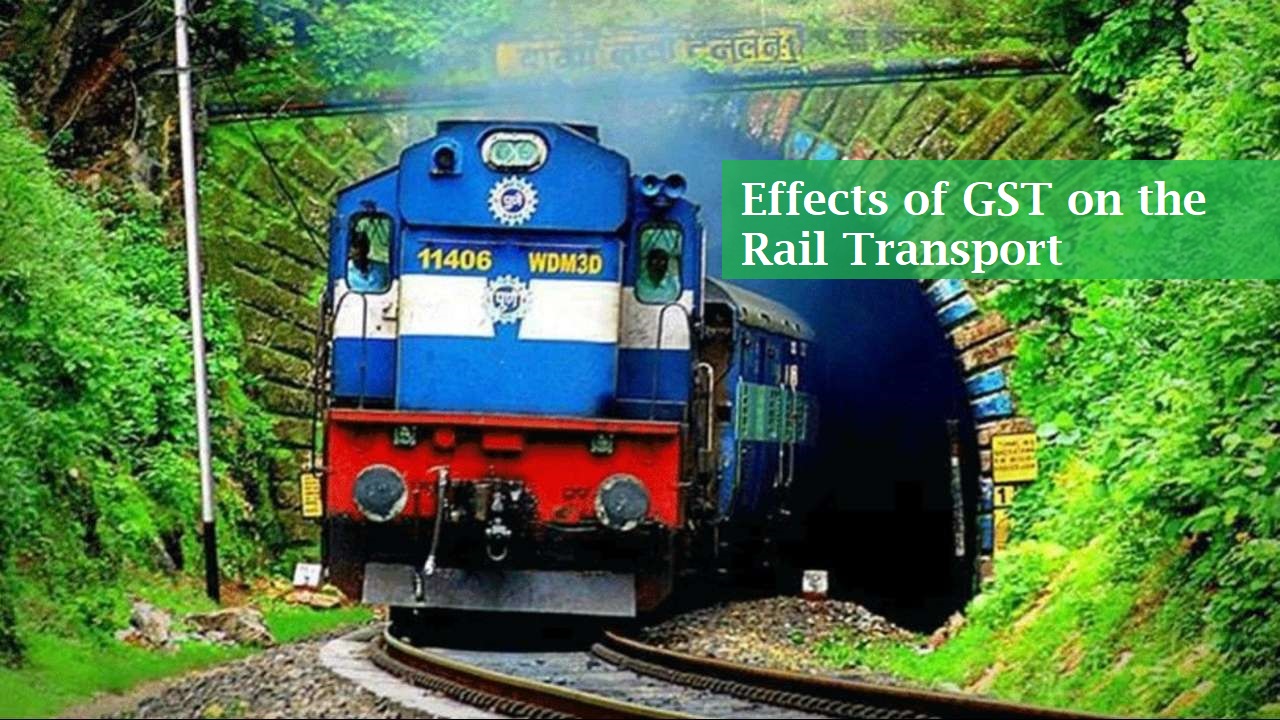Today, we’re going to explore the Indian Rail Transport and the impact of GST rates on it. Indian Railways has been an integral part of the Indian economy since its inception, and its significance cannot be overstated.
First, let’s go back in time and explore the history of Indian Railways. It was established in 1853, and since then, it has been playing a vital role in transportation, connecting people, goods, and resources across the vast expanse of India. With its vast network of over 67,000 kilometers of track and 7,000 stations, Indian Railways is the lifeline of the country’s transportation system.
Now, let’s talk about the different services offered by Indian Railways. The services include passenger transport, freight transport, and leasing of rolling stock. Passenger transport accounts for over 70% of Indian Railways’ revenue, and it connects millions of people daily, providing an affordable and accessible mode of transportation.

After the introduction of GST in 2017, the Indian Railways industry has seen significant changes in its tax compliance, logistics costs, and ease of doing business. Different GST rates are applicable to various rail transport services.
GST rates for train tickets and transport services
GST applies to all goods and services delivered by rail, including passenger tickets, commercial vehicles and catering services. A standard GST rate of 5% applies to rail transport and catering charges subject to various conditions outlined below.
Prior to the GST, there was a service tax at a rate of 15% applied to 30% of the cost of rail transport and no tax on 70% of the cost of transport.
This means that the actual service tax was 15% of 30% = 4.5% of the shipping cost. Obviously, the rail tax has been raised to 5% from the previous 4.5%.
Impact of GST on rail passenger transport
There will be a slight increase in ticket prices for passengers traveling on AU and Indian Railways First Class. The increase is only 0.5% and may not be noticeable depending on the actual ticket price.
There is no tax for 2nd class/sleeper passenger tickets and subway tickets.
Input Tax Deduction: Train passengers traveling for business purposes benefit from being able to claim ITC by now listing the price of their rail ticket in their business expenses.
GST Impact on Railway Transport of Goods
Railways have never been a preferred choice of businesses for transporting their goods from one place to another in India, mainly because of the various paperwork and compliances involved.
However, GST comes as a relief for the railway transportation industry. Even though the effective tax rate under GST (5%) is higher than the old service tax rate of 4.5%, the overall cost of transport is lower now because of the input tax credit mechanism of the GST system.
Since most of the railway transports of goods are for business purposes, ITC is available for all such transactions. This effectively puts railways ahead of alternative road transport since there is no ITC available on the transports made via roads but tax liability is the same.
The 5% GST also applies to all surcharges imposed on the carriage of goods by rail.
The impact of these GST rates on the Indian Rail Transport industry has been mixed. On the one hand, GST has simplified the tax compliance process, reducing the number of taxes and paperwork involved in freight transport services. On the other hand, the increase in logistics costs due to the 5% GST rate on freight transport services has increased the cost of transportation, affecting the industry’s profitability.
GST exemptions that are applicable to rail transportation
Let’s talk about the GST exemptions that are applicable to rail transportation of certain goods and commodities. The Indian government has introduced these exemptions to support and promote various sectors that contribute to the nation’s economy.
Under the GST regime, certain categories of goods and commodities are exempted from tax. Here’s a list of items that fall under this exemption:
- Transportation of goods and commodities via Indian railways
- Freightage of essential food items like salt, rice, flour, milk, etc.
- Transportation of relief kits such as food and medicine to disaster-stricken regions or areas
- Transportation of registered newspapers, magazines, journals, etc.
- Transportation of manure and other agricultural products
- Movement of security weapons for the defense and military department of India
- Inter or intrastate conveyance of technicians, repairmen, etc. for maintenance purposes
- Commuting of trains or parts of trains for repairs, maintenance, or servicing
These exemptions not only provide tax relief but also promote the growth of various sectors such as agriculture, defence, and disaster relief. It also helps in providing essential commodities such as food and medicine to the affected areas during times of disaster. Moreover, the transportation of newspapers, magazines, and journals is crucial for the dissemination of information and knowledge across the country.






